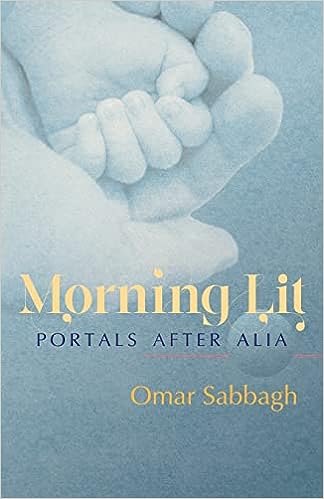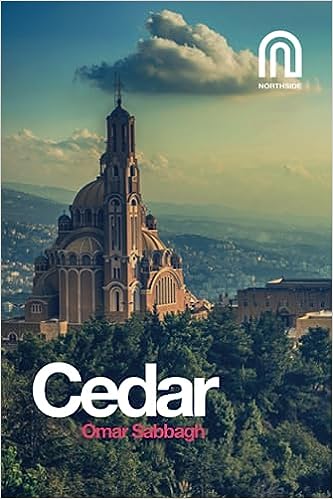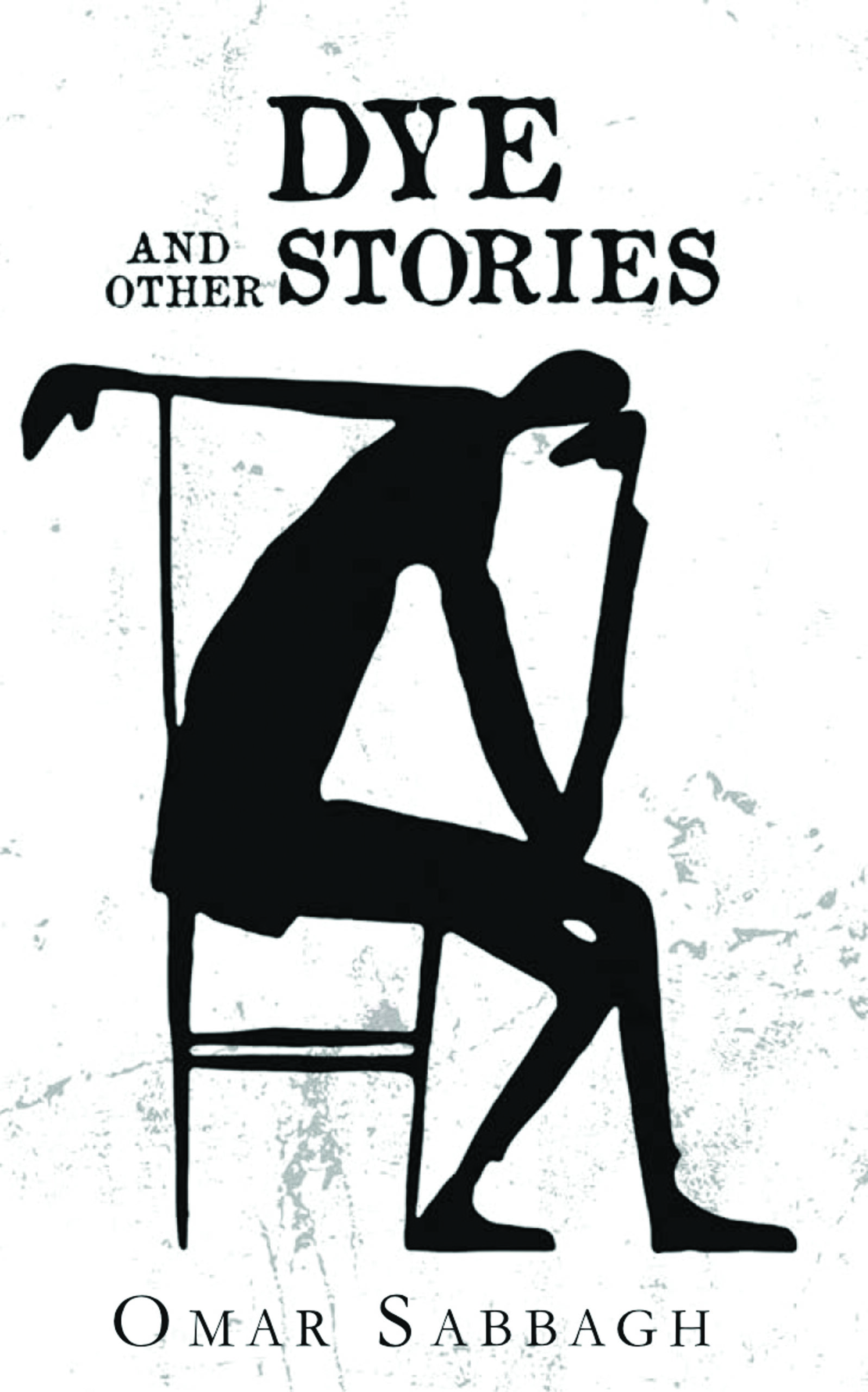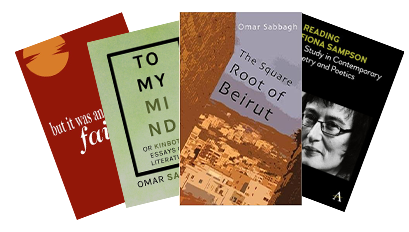Exploring My Inked Creations: A Glimpse into My Published work.
Published work
Poetry
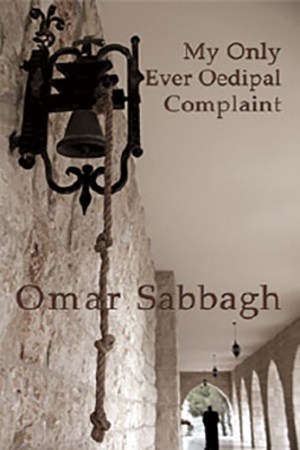
My Only Ever Oedipal Complaint
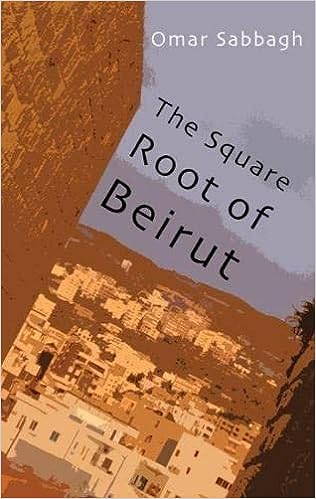
The Square Root of Beirut
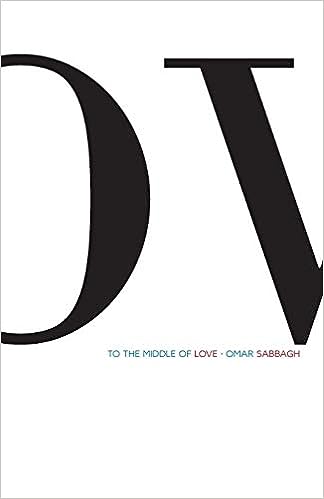
To the Middle of Love
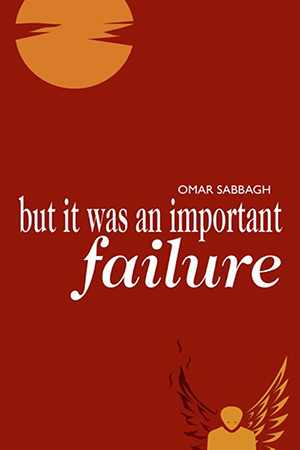
But it was an important failure
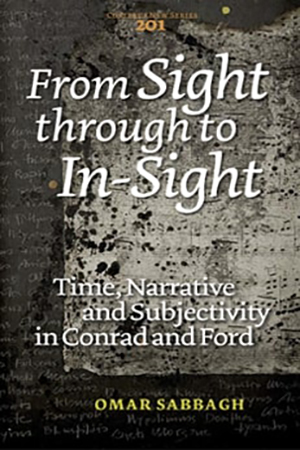
From sight through to In-sight
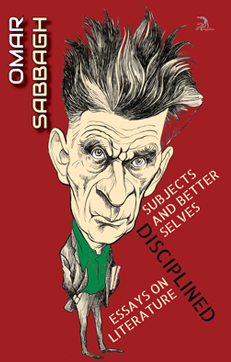
Essays on leterature
FICTION / CREATIVE NONFICTION
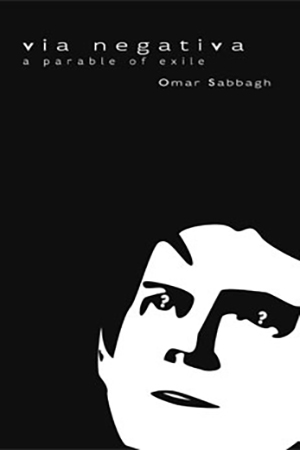
Via negativa
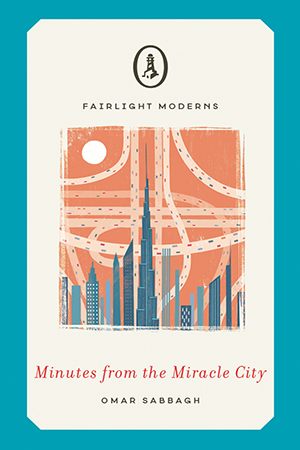
Minutes from the Miracle City
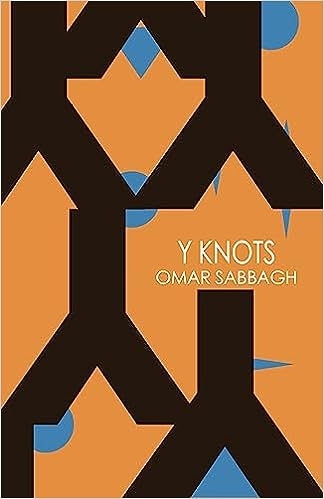
Y Knots
Criticism
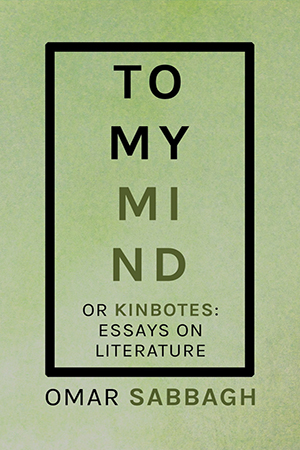
To My Mind
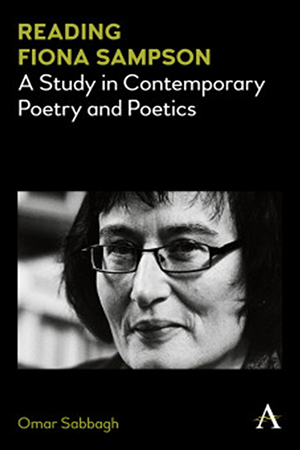
Reading Fiona Sampson
Where Words Dance in Harmony
Poetry Corner
Welcome to our Poetry Corner, a realm of heartfelt expressions and lyrical beauty. Dive into the captivating world of poetry, where emotions, dreams, and thoughts intertwine to create verses that resonate with the depths of the soul.
Published: 2014-05-12 17:56:42
Dark Wood
For Jeni Oppenheimer
The idea behind her skirt was metaphysical.
A sex caressed more by sun than by the maul,
The mundane maul.
It was unanswerable.
Logic became a living, fretting bird in its wake.
It was arch, necessary, absent to itself
As any winning joke
Told and told again from health to health.
There was a thimble-small element of fear as well.
But I won’t go into that, that ‘dark wood’, that middle.
Published: 1970-01-01 00:00:00
An Agreement
Fetching, like an incoming, livid sea,
She approached the infinity
Of puckered sand that was me.
And she had free white lips
With which I couldn’t help
But agree, and agree, and agree.
Published: 2014-05-12 17:56:42
Muhajabeen
Yas, Olympia
I won’t tell what girds or taxes her.
I won’t opt for the obvious surd –
The obvious, telltale surd
Much like a moon-cussed straitjacket,
The lame and awry, the fat
Of a leper
Of a predicate.
Let the copula bellow its own shrill fame,
As sole shark to a globular sea.
And let the brine be what bite, what blood, what
Cold, what dark’s writ and opted for me –
Chess to checkers, baroque to matt
As it ever was…
Let the walking illusions pray
Their heavy musk,
Like a mother that feels her wrongs…
Like the mother beveled before
The first apple or the first mummer
In mammary,
And I more and more
And I descried and I discerned
Echoic from the blend
With high and mortal intents
And whatever else is meant
By sots in the café,
By hearts for sale, by hearts for rent.
No.
I won’t say what girds, what taxes her.
Published: 1970-01-01 00:00:00
The Salvaging
Yas, Kensington, London
Imagine a fisherman with an infinite net:
His little grey boat, posed, like an infinite bet
Against a sea’s wide slurs, her echolalia…
Out of all the fey rhapsodies and masks
The uncaught fish finds his focus, his home
And the spindly fern-pattern before his
Spindly heart, like ribs like fast
empty wishes,
His slim and slippery task:
to be a fish was always daft…
But the bone-thin fisherman, less the kisses
Of some mastered art, turns riled and vicious,
Stark,
a poverty facing the patent riches
Of the glittering, safe, mislaid, dispersed
Fish among fishes…
Published: 1970-01-01 00:00:00
The Reality Of It
Has been a flying dinosaur’s wing
Found in the muddy earth, a deep shilling
From the gold standard of yesterday.
Has been the privacy of a well-lit play,
The boards treaded by walking flames,
Ratty pigeons in the scale of things.
Has been the door through which a sire
Goes wedded to a duck, makes a liar
Out of love, makes a liar a liar.
Has been the whole of Africa in
The sweaty palm of an Indian,
Some such transient confusion.
Has been too many clocks to fit
The wall of a reading room, the sins
Of learning, deep, like a covert kit
In a battle raging over all but
That everything which ends and begins
Again and again – as friendship wins.
Has been the torture at the spine
Of a bacterium, or a viral portent in
A Eucharist of wreckage, half-spelt signs.
Has been the major tenor of a life
In which no vehicle is quite
Good enough
To make sense of this bloody mire
In which blood-cells go cheap and for hire –
A cock-up, overall, too much wrong for the lair
Of one beholden man, beholding
The same – and the thick, grisly maze of fear
Through which he scurries: golden / unfolding.
A Dear Friend Grieves
For Patricia McCarthy
Foursquare,
The muscles taut with her loving,
There was nothing
Trojan or double or troubling
About the foursquare mare…
And there was no horsing around
In that companionship: a bond,
A deep and edgeless bond…
Ripped now with sorrow,
Ripped now
By wailing tears, riven, she rows
Whitewaters without sound.
Published: 1970-01-01 00:00:00
Breaths Between The Notes
Where it is to finish is not my business.
Where the gull flies, a parabola above a sea’s miles
And miles, is taught me only by regrets,
How the scarecrows I know fall from my pockets
Like loose coins, a flower’s stray smells, a flower’s…
The island to the lone tree, the sky to the power
Of the happenstance made to dance to a styled
Essence, a thick thing-hood won by a swan’s caress…
I can’t offer more to the embossed choir –
A singe upon the chests of burly liars –
Than the architecture of my verse, muscular
Fire, and no wafting smoke to pillage and evict
What the air means, when by breeze it evokes
A sense of ending, and breaths between the notes.
Published: 1970-01-01 00:00:00
01-01 00:00:00
To The Middle Of Love
To The Middle Of Love
Though you never knew me, more than a knowing nod
From the TV; though you near-wept as you read
About your father, a blackbird, and more, much more;
And though you were the festival in your finite life,
Now stroll, beyond all wanderings, naming no error
In those halcyon gardens where all are careless with their
Care; now amble, don’t hesitate: there the poems are quiet
As fires without denizens or hasty feelings for the air
In which they billow, yellow, red, blue as an apple-core…
No. You are not dead, spent, gone. You are
What the birds sing at hallowed morning, knowing the more
In store, knowing what good speed, what loaded dares
Are meant by the passing of a bard to the middle
Of everything. To the middle of love. That’s all.
Published: 1970-01-01 00:00:00
A Moustachioed Priesthood In The Bar
(Ferdinand, Hamra, Beirut, Lebanon)
for Shady Jaber
Where it is to finish is not my business.
Where the gull flies, a parabola above a sea’s miles
And miles, is taught me only by regrets,
How the scarecrows I know fall from my pockets
Like loose coins, a flower’s stray smells, a flower’s…
The island to the lone tree, the sky to the power
Of the happenstance made to dance to a styled
Essence, a thick thing-hood won by a swan’s caress…
I can’t offer more to the embossed choir –
A singe upon the chests of burly liars –
Than the architecture of my verse, muscular
Fire, and no wafting smoke to pillage and evict
What the air means, when by breeze it evokes
A sense of ending, and breaths between the notes.
Published: 1970-01-01 00:00:00
Hearsay
To The Middle Of Love
I start with hearsay: how I entered a pact
With the past, heaving like an oath towards fact.
I knew my childhood through the dim regard
I had of others, later, when old-age wore this bard.
I’d no inkling for Homeric Greek. I loved my Latin.
Words – after cries and wails and screams, grins
And belches – I learnt by use, in time – a mime – as well…
A philosopher, I believe, would descry – pell-mell –
How one learns to speak and know and meet the meat
Of others – by ‘language-games,’ and fission-fleets
Of them. But that was well beyond a millennium
Later: by then, I was safe and snug in your dominium,
Lord… I was beatified, dubbed a Saint: prose to meter;
And this verse serves to limn my first and deepest winter.
Published: 1970-01-01 00:00:00
A Sex Espied
After Chapter 2 of Augustine’s Confessions
At sixteen, you find me idle, school-bereft.
Father takes me to the baths, espies my sex,
And is delighted at the nearing prospect
Of grandkids. He goes out of his way
To collect the funds to send me, spritely, gay,
Onto Carthage. Meanwhile, Mother is
God’s reflector, shame in my shamelessness…
In this eon of life, I loved only to reign as rake;
Peer pressure abounds, a kind of vice in trust…
What is evil, but wrong done for its own sake –
Not, thus, from Need? I see myself still, nip, take
That gorgeous extant, God’s instance: a ripe pear…
None think they wrong wholly, or, in total, err!
I’m the exception. Inside rapine, I found Care.
Published: 0000-00-00 00:00:00
Worldliness Far From Cynicism, Or, The Fallen-ness Of The Un-fallen: On Marilyn Hacker’s Names And Essays On Departure
‘To want substance in cognition is to want a utopia.
It is this consciousness of possibility that sticks to the concrete, the
undisfigured.’
Theodor W. Adorno, ‘Introduction,’ Negative Dialectics
‘Exiles, at least, have clarity of purpose:
can say my town, my mother and my fate, my country.’
from ‘Ghazal: dar al-harb’
As the epigraphs above intimate, there is a very strong case for saying that true ‘Otherness’ isn’t truly occluded as Other. The otherness or adequate transcendence Adorno invokes belongs in a sense only to God. This (very poetic) philosopher wishes for an Adamic naming, an (impossible) Adamic concept, where thing and word are immanently one. Similarly, the poet’s ‘clarity’ is the clarity of those ‘beyond’ the Pale.
A woman, a feminist, a (non-Zionist) Jew, a lesbian, Marilyn Hacker partakes of this paradox. ‘[E]piphanous’ or ‘ephemeral’ (‘Lauds’), mise-en-abyme or thoroughgoing Adamic closure, age and innocence, hope and despair, agency and impotence, among many of the woven and processual dichotomies which inhabit this collection – there is a sense in which Hacker’s poetic persona is an Other to (her own) Otherness. So when she writes in the final stanza of ‘For Kateb Yacine:’
Published: 0000-00-00 00:00:00
Omar Sabbagh
A Letter From A Poet To His Unconscious
(aka: Mum and Dad)
Dear Unconscious (or,Mum and Dad),
I am a battlefield. I am as much your battlefield as I am your progeny…
At different times in my life, to speak in terms of (personal) history, and
as different aspects of the same moment in time, to speak synchronically, I
have been the space where different and opposing tendencies have fought for
domination: for a poet, experienced as fecund tension; as a human being,
somewhat painful. The tension, deep in my unconscious, is I believe (on the
evidence of what has repeatedly surfaced) between what Coleridge called
‘fancy’ and, following Kant, what he termed ‘imagination’; between what
Lacan called the ‘imaginary’ and the ‘symbolic’ registers; between the mother
as loving container facilitating regressive delirium – a centrifugal force – and
the effort of the father in me to make sense, give a sense of ending, interpret,
anchor: a centripetal force. Both forces, the masculine and the feminine (not
necessarily embodied in you, Dad and Mum), the positive and what
resonates in the interstices of the ontic, are and have been integral to the
process of poetic creation, the mysterium tremendum of creativity.
Published: 1970-01-01 00:00:00
The Bad Minuet
Blue Note Café, Hamra, Beirut, Lebanon
For C
Critters spray dross across the dance-floor
As though it was a critical step, a door
From garbage to what came after, before.
Cretins ape with ambition, a mimesis for
The poor in spirit – their innards: sea-less piers,
A drop onto waves of old-aged wood. Fear’s
Boutique. Unworn dresses in raining tears.
Unworn women. O the years, the years!
***
If I kiss her spine in memory, her bare
Neck, the white of her, the white of her,
Her quid pro quo, her: daring and near –
If so – in that long ago – I become livid fire,
Plum, mauve, deep and purple with scaling care.
Not a day goes by I don’t think of that far
Night, tripping on lightning, a speeding hare
In my head, my dizzy mind turned fair
for the future.
Published: 1970-01-01 00:00:00
A Dent In The Light
After Chapter 3 of Augustine’s Confessions
Little later in life the flesh flew fey and wild, a Gnosis;
I gorged myself, my very meat: a fluent waylaid course…
Just so, against Plato, I rued a playful muse, a mad bourse
Aimed, like trickery, to thread me through, spent, hoarse
At the viscera’s use – the tragic lay of some pagan wretch…
My mother, of course, knew better, bigger, more.
She knew that wrong was a whore without a stitch
Of true or gladsome garb – just flesh, flesh and absence…
Still, my peers harrowed me, the urge of naked sense
In parity with spirit – as if there were living fish
Whose sea was deep, but sky-denied: high culture into kitsch…
They would twist the negative, the bleak, the black: to a fetish.
Little did I know: I, a loon, facing the mighty fundament
Of Good; Evil: a mere gap in the light, light askew, a dent.
Published: 0000-00-00 00:00:00
A Moustachioed Priesthood In The Bar
(Ferdinand, Hamra, Beirut, Lebanon)
for Shady Jaber
The wooden counter in the bar’s a prie-Dieu for
Lost causes, toppling, tumbling bellies, fumbles
At the sly door of Womanhood, the still / unstill
Windowsill.
And the blues’ drapery’s absurdity, their
quick, queer
Mores, speak volumes to the groans
And hard hopes of this
Stood, priestly Dali…
Ease says the face, won suaveness.
Any taut madness in his dreams is a fenced madness.
There is trust here:
- As though there was no danger, nor a single risk
- Within the strict cuss of this Lebanese sickness –
- To undress and undress the dressed, to tear at the tears
- Of the worse off – and only money there to care for.
Shady mans the scars, and the worn wounds entering the bar.
Published: 0000-00-00 00:00:00
A Dear Friend Grieves
For Patricia McCarthy
Foursquare,
The muscles taut with her loving,
There was nothing
Trojan or double or troubling
About the foursquare mare…
And there was no horsing around
In that companionship: a bond,
A deep and edgeless bond…
Ripped now with sorrow,
Ripped now
By wailing tears, riven, she rows
Whitewaters without sound.
Published: 2014-02-16 00:00:00
The Reality Of It
(Ferdinand, Hamra, Beirut, Lebanon)
for Shady Jaber
Has been a flying dinosaur’s wing
Found in the muddy earth, a deep shilling
From the gold standard of yesterday.
Has been the privacy of a well-lit play,
The boards treaded by walking flames,
Ratty pigeons in the scale of things.
Has been the door through which a sire
Goes wedded to a duck, makes a liar
Out of love, makes a liar a liar.
Has been the whole of Africa in
The sweaty palm of an Indian,
Some such transient confusion.
Has been too many clocks to fit
The wall of a reading room, the sins
Of learning, deep, like a covert kit
In a battle raging over all but
That everything which ends and begins
Again and again – as friendship wins.
Has been the torture at the spine
Of a bacterium, or a viral portent in
A Eucharist of wreckage, half-spelt signs.
Has been the major tenor of a life
In which no vehicle is quite
Good enough
To make sense of this bloody mire
In which blood-cells go cheap and for hire –
A cock-up, overall, too much wrong for the lair
Of one beholden man, beholding
The same – and the thick, grisly maze of fear
Through which he scurries: golden / unfolding.
Published: 2014-03-03 00:00:00
The Salvaging
For Patricia McCarthy
Imagine a fisherman with an infinite net:
His little grey boat, posed, like an infinite bet
Against a sea’s wide slurs, her echolalia…
Out of all the fey rhapsodies and masks
The uncaught fish finds his focus, his home
And the spindly fern-pattern before his
Spindly heart, like ribs like fast
empty wishes,
His slim and slippery task:
to be a fish was always daft…
But the bone-thin fisherman, less the kisses
Of some mastered art, turns riled and vicious,
Stark,
a poverty facing the patent riches
Of the glittering, safe, mislaid, dispersed
Fish among fishes…
Published: Agenda, June 2017.
The More and More...
For Faten
I imagine rock-climbing, slimming snowy caps –
The air is thin there. It’s dragged across rocky, unknown maps
Where the muscles tighten, decking and decking their flesh,
And the juices are red there, redder, beyond redress…
Then I think of a deep lagoon, where famous men
Fish the sap of their souls, the dear and juicy den
Where they are furtive blooms, becoming, as become,
Themselves at last, beneath the crystal-brine, a home,
Beneath the white and blue, beneath the blue…
And then I think of her, lipping her liquid truths
Onto mine; and I think of how a candle’s
Lit, the wick: beckoning the rounding air as fuel…
There are four of us there, between the sheets,
Two of whom are bitten, two of whom are sleep.
There are four of us there, seconding the night –
Its dram of dire gambit, with its X-ray sights
Needled upon the me in her, the she in me,
Echoing the tropics of a graphic topography,
An unknown map becoming read and known,
The more and more we close and hone, warmly
uttering,
uttering
home,
and home.
Some Prose
CRITICAL
Ghassan Zaqtan
Like a Straw Bird It Follows Me, and Other Poems
Translated by Fady Joudah
Yale University Press (2012)
$26, 121 pages
Translations ‘About’ Ghassan Zaqtan: On The Powers Of Laughter
‘the deep brotherhood that leads to no wisdom
the talk that’s no longer suitable for high altitude.
’ from ‘The Canyon’
The hermeneutic temptation to read these details as symbols and to search for their hidden meaning should be resisted: they are exposed fragments of the real which resist meaning. The meaning of their context—the terrible situation of the Shoah—is too traumatic to be assumed, so this sudden focus on material details serves the purpose of keeping meaning at a distance.’ Slavoj Zizek, Less Than Nothing
CREATIVE
The Beirut Cadenzas: Refractions From Damaged Life Omar Sabbagh From Bourbon To Scotch The Germanian: An Allegory From The Desert Dye New Writing For Dr. George Resek
Â
A Healing Art, Or Antinomy In The Poetry Of Norbert Hirschhorn
Published: Spring 2013, The Warwick Review
‘…At the Oasis Café someone asks,
where are you from? I reply, I am from disjointed frag-
ments of time. Someone says, Answer the question.
I answer, I am from you. Someone persists, but when
I’m gone? I say: I am from my words.’
‘Qaseeda – A Love Song’ in Monastery of the Moon
Norbert Hirschhorn, MD, is both a distinguished physician and a distinguished poet. What I would like to suggest in this article commending his work, is that in many different ways the two ‘vocations’ are deeply cognate. The ground of this article are Hirschhorn’s three extant collections: A Cracked River (Slow Dancer Press, 1999); Mourning in the Presence of a Corpse (Dar al-Jadeed, 2008); and, very recently, Monastery of the Moon (Dar al-Jadeed, 2012).
To start with: perhaps there is a generic way in which the medical profession dovetails with the literary: I can think of three immediate examples off the top of my head. Mikhail Bulgakov, Primo Levi, and Lawrence Durrell (this last never was a doctor, but from Ian MacNiven’s Faber biography, I learnt that later in life the one profession he wished he’d pursued apart from writing, was medical.) Perhaps the generic commonality is the vocation of ‘healing’ – something I deal with below in the flesh, so to speak; or perhaps, more formally, it is to do with modality – being detached, an observer of life, of the living and the dying, aloof like Joyce’s famous Godly artist paring his fingernails?
Once More Unto The Breach, Or, Notes Out Of A Quietus:
On Fiona Sampson’s Coleshill
Published: Winter 2013/14, The London Magazine
‘If only form
were language…’
(‘Dreamsongs’)
‘We tremble,
feeling everything’s in motion,
and that feeling goes to and fro
in the world that shivers round us –
World, too, is something poured
and endlessly pouring itself.’
(‘Sonnet Twelve — Deer At Middleleaze’)
‘only a part of me feels free
to shape the words I lack.’
(‘The Soloist’)
In her latest collection, Coleshill, Fiona Sampson remakes her authorial space in direct continuity with the modernist tradition. Much like modernist (and late modernist) icons, such as Ford, Joyce, Eliot, Woolf, or – a known favorite of Sampson’s – Durrell, the poetry in this superlative collection speaks with uncanny authority from and in the space before or, thereby, beyond the discrete ego’s organization. However, where the idea of the ‘spirit of place’ fits, say, Durrell, under the ‘idea of spatial form’ (Joseph Frank), where time or narrative becomes a radically sliding, eliding, relative enterprise, Sampson’s verse seems to me to be sourced and targeted at a slightly different gambit.
Zoë Brigley, Conquest (Bloodaxe Books, 2012), Pb. (64 p.), £8.95, ISBN: 978-1-85334-930-4
The Headiness, The Heaviness Of Womanhood
Published: Autumn 2012, Agenda
‘I train to the trellis what once was wrecked,
and await the springtime of candling plants.’
‘Walls Have Ears’
This superb collection opens on a heady, dizzying note, which is at the same time atoned by the formal choices made. Out of the shifting and sly juxtaposition of subjects and pronouns in ‘My Last Rochester’ – ‘She, her, you, him –’ we are faced with experience in medias res, what Sir Frank Kermode called a ‘middleness,’ and what one of the founders of modernism, Ford Madox Ford, called an ‘affair.’ The (disenchanting) last line of this opening poem reads ‘It was never you that she wanted,’ thereby suggesting what this poem, as a whole, effects, namely a corrective to an hackneyed and male portrayal of femininity. As opposed to the idea of some kind of ‘empty signifier’, where a woman is what whatever bad infinity is desired of her, we have in this last sentence a tonic; not to mention the assertiveness of lines in the blunt indicative like, ‘She’s writing after so long, sensible or not. / She’s not asking for anything, not ever.’ Another rewriting of masculine, skewed views of femininity, is offered by the formal pattern, which is by turns synchronic/contrapuntal and diachronic, of the first and third verses, and the second and fourth verses, corresponding – leading to the pursuant development of the last two verses. When Brigley writes, ‘you both made your way to the hotel in silence…’ what is evoked is not only intimacy, but also her ability to stand outside of herself, to not be a victim of her experience, but its shaper, both within and without the poetic space.
D. Nurkse, Voices Over Water (CB Editions, 2011) pp. 90., ISBN: 978-0-9561073-8-1
The Virtue Of Not Being Able To Totalize: On D. Nurkse’s Voices Over Water
Published: Autumn 2012, Agenda
Publish:2013, ENVOI
‘…and he wished in secret
there was another man strong as he on our island,
so he might kill instead of simply dying.’
‘The Island Gospel’
To start slantwise, and to justify later, the guiding spirit over this memorable volume of plosive poetry is, for my purposes, Mikhail Bulgakov. As I read Nurkse’s work, its major tenor for me is that of a magical realism. Just as Bulgakov’s limited hero in The Master and Margarita only achieves ‘peace’ rather than ‘light’ at the conclusion of his magisterial novel – as index of his limitedness – so for me the major pattern to emerge from this volume is, if you like, the impossibility of totalization, or of experience going neatly into one valence or another. In a way, what I intend to suggest below is what Theodor Adorno once criticized Walter Benjamin for, in his work on Baudelaire, namely an un-mediated or we might say un-processed combination of ‘magic’ and ‘positivism.’ This, for me, is of the essence of Nurkse’s effects: namely a deadpan demotic, a ruthless colloquialism which shapes a kind of (exilic) experience that points – but intransitively – beyond the plain of immanence. To complicate this picture, and to add texture to it, let me begin with the beginning and ending of the volume – which contrapuntal parallelism may well suggest that at a higher level of abstraction, the content of what I tease out below, is contradicted; which, if I too am thinking poetically in my interpreting, both proves my point, and I guess, refutes it – which, again, is the point. (I am not trying to be funny….)
Â
Worldliness Far From Cynicism, Or, The Fallen-ness Of The Un-fallen: On Marilyn Hacker’s Names And Essays On Departure
Published: Spring 2013, Agenda
‘To want substance in cognition is to want a utopia.
It is this consciousness of possibility that sticks to the concrete, the
undisfigured.’
Theodor W. Adorno, ‘Introduction,’ Negative Dialectics
‘Exiles, at least, have clarity of purpose:
can say my town, my mother and my fate, my country.’
from ‘Ghazal: dar al-harb’
As the epigraphs above intimate, there is a very strong case for saying that true ‘Otherness’ isn’t truly occluded as Other. The otherness or adequate transcendence Adorno invokes belongs in a sense only to God. This (very poetic) philosopher wishes for an Adamic naming, an (impossible) Adamic concept, where thing and word are immanently one. Similarly, the poet’s ‘clarity’ is the clarity of those ‘beyond’ the Pale.
A woman, a feminist, a (non-Zionist) Jew, a lesbian, Marilyn Hacker partakes of this paradox. ‘[E]piphanous’ or ‘ephemeral’ (‘Lauds’), mise-en-abyme or thoroughgoing Adamic closure, age and innocence, hope and despair, agency and impotence, among many of the woven and processual dichotomies which inhabit this collection – there is a sense in which Hacker’s poetic persona is an Other to (her own) Otherness. So when she writes in the final stanza of ‘For Kateb Yacine:’
Omar Sabbagh
Aspects of Indefiniteness and Definiteness in George Eliot’s Middlemarch
Published: 2005, in The George Eliot Review
Published: 2005, in The George Eliot Review
As notions come of abstractions, so images come of
experiences; the more fully the mind is occupied by
an experience, the keener will be its assent to it…and
on the other hand, the duller will be its assent and the less
operative, the more it is engaged with an abstraction…
John Henry Newman
We are all of us imaginative in some form or other,
for images are the brood of desire…
George Eliot
On my first reading of Middlemarch I noticed immediately in my pedantic way the word ‘indefinite’ repeated throughout the novel. Later, having thought about the novel at a little more depth, I realised how significant this was. The ideas of indefiniteness and its opposite, by themselves and cashed out in terms of other kindred antitheses, are central to the overall meaning of the novel- viewed formally and simply as a story. Below, in addition to their own significance, I have translated the terms ‘indefinite’ and ‘definite’ into other sets of antitheses, such as abstract and concrete; general or universal and particular; whole and part; ideal and real; external and internal. These different senses often overlap and I believe this validates my decision to use them as siblings to the indefinite/definite antithesis. The fact that they recur and confirm each other’s antitheses in different ways hopefully shows that their conceptual coupling corresponds to a more fundamental philosophic unity. And so what follows is an exploration in search of some of the places in the novel where these antithetic meanings can be teased out. I will begin by discussing formal features of the novel and will then descend to a closer look at its content.
D. Nurkse, Voices Over Water (CB Editions, 2011) pp. 90., ISBN: 978-0-9561073-8-1
The Virtue Of Not Being Able To Totalize: On D. Nurkse’s Voices Over Water
Published: February 2013, in Envoi, 164
‘…and he wished in secret
there was another man strong as he on our island,
so he might kill instead of simply dying.’
‘The Island Gospel’
To start slantwise, and to justify later, the guiding spirit over this memorable volume of plosive poetry is, for my purposes, Mikhail Bulgakov. As I read Nurkse’s work, its major tenor for me is that of a magical realism. Just as Bulgakov’s limited hero in The Master and Margarita only achieves ‘peace’ rather than ‘light’ at the conclusion of his magisterial novel – as index of his limitedness – so for me the major pattern to emerge from this volume is, if you like, the impossibility of totalization, or of experience going neatly into one valence or another. In a way, what I intend to suggest below is what Theodor Adorno once criticized Walter Benjamin for, in his work on Baudelaire, namely an un-mediated or we might say un-processed combination of ‘magic’ and ‘positivism.’ This, for me, is of the essence of Nurkse’s effects: namely a deadpan demotic, a ruthless colloquialism which shapes a kind of (exilic) experience that points – but intransitively – beyond the plain of immanence. To complicate this picture, and to add texture to it, let me begin with the beginning and ending of the volume – which contrapuntal parallelism may well suggest that at a higher level of abstraction, the content of what I tease out below, is contradicted; which, if I too am thinking poetically in my interpreting, both proves my point, and I guess, refutes it – which, again, is the point. (I am not trying to be funny….)
Omar Sabbagh
Ros Barber, The Marlowe Papers (Sceptre, 2012), p. 445, ISBN: 978 1 444 73738 7
Published: Winter 2001, in The Warwick Review,
What’s in a name? Ros Barber’s moving refiguring of Elizabethan literary history, and the life and myth of Christopher Marlowe (and ‘William Shakespeare’) which is emblematic of that time, is signally undergirded – both in the gripping narrative and in the lyric soliloquies which pit that narrative in such a timely way – by the problem of the name. The Marlowe Papers returns us with renewed vigor to the age-old debate over the authorship of Shakespeare’s plays.
Throughout Barber’s eminently readable, light yet powerful narrative, it is not just the usual ambiguities of Marlowe’s imprimatur in the documented record that is at stake, but also a deeply embedded and extended poetic reflection on poetic and humane ‘authority.’
Â
The Doggedness Of Underdogs: Verse Of Resistance
Published: November, 2013, in Wasafiri
Poetry of the Taliban, trans. Mirwais Rahmany & Hamid Stanikzai, ed. Alex Strick van Linschoten & Felix Kuehn (London: Hurst & Co, 2012), Hb., ISBN: 978-1-84904-111-9
Owen Gallagher, Tea with the Taliban (Smoke Stack Books, 2012), Pb., £7.95, ISBN: 978-0-9568144-7-0
Poetry of the Taliban, a vibrant anthology of pre-and-post 09/11 Afghan poetry comes equipped with a scholar’s (Faisal Devji) contextual, historicizing and intriguing preface, as well as the editors’ (Alex Strick van Linschoten and Felix Kuehn) introduction, which details the more quotidian context of (the poetry of) the Taliban in recent history, and of the history of this very anthology which aims to reflect it. After the first section of selected poetry, pre-09/11, there are five more thematic sections: ‘Love & Pastoral’; ‘Religious’; ‘Discontent’; ‘The Trench’; and ‘The Human Cost’.
Omar Sabbagh
The Warwick Review
Published: Winter, 2013, in The Warwick Review
Maitreyabandhu, The Crumb Road (Bloodaxe, 2013), ISBN 978-1-85224-974-8, 79 pp, £9.95 (pb)
Marianne Burton, She Inserts the Key (Seren, 2013), ISBN 978-1-78172-038-7, 64 pp, £8.99 (pb)
Andrew Philip, The North End of the Possible (Salt, 2013), ISBN 978-1-907773-41-9, 76 pp, £12.99 (hb)
Heather Phillipson, Instant-flex 718, (Bloodaxe, 2013), ISBN 978-1-85224-970-0, 64 pp, £8.95 (pb)
The verse epigraph to much-feted poet, Maitreyabandhu’s first full collection, The Crumb Road, holds within it some of the tensions to be elicited here. It is comprised of two verses which, while postulating the harmlessness of lyricism and song, both end with: ‘Whatever else there is, there’s this as well.’ An equivocation, then, and one significantly coming at the end. Unlike, say, Don Paterson, closing Rain, or indeed the infamous dictum of Auden, Maitreyabandhu posits the ineffable value of verse, as well as the suggestion that it is de trop. Poetry, commemoration in this case – of family / loved ones in the main – is both aligned with other patent goods, an-other thing, and at the same time de-ontic-ally detached from them. Poetry matters as much as matter, and, but also, more so.
The essay, ‘Love’s Knowledge…’
Ford Madox Ford's The Good Soldier
Published in June 2015 in Ford Madox Ford’s The Good Soldier:Centenary Essays (Brill, 2015), ed. Max Saunders & Sara Haslam
REALISATION BEYOND DEFENCE:
DURRELL’S ALEXANDRIA QUARTET AFTER, AND
BEYOND, FORD’S THE GOOD SOLDIER
The provenance of this essay is both the common ground and the essential difference
in epistemological (and by proxy ethical) stance between Lawrence Durrell’s The
Alexandria Quartet and its putative forbear, in many respects: Ford Madox Ford’s The
Good Soldier. More specifically, I aim to critique the role and value of each author’s
use of story-telling narrators and/or narrator-characters – in relation, of course, to the
overall signifying topography of each novel.
Mud and Holy Water
 Los Dissidentes
Published in POEM July 2015
Coming to anything late in the day has an allure
all its own.
‘Los Dissidentes’
Paul Muldoon’ s Oxford Lectures, The End of the Poem, is one of the most brilliant
books on poetry I have ever read. What I found so thrilling about it was the way
both formal analysis of chosen poems and the elicited historical/biographical contexts
fi tted so neatly and with such aplomb in Muldoon’ s discourses. Indeed, so
neat was the hanging-together of the critical, authorial insight across the 15 lectures
that it became clear, at a sort of depth-grammar level, that Muldoon’ s dilations were
just simply “objectively” the truth of the matter behind and within and through the
poems.
Omar Sabbagh
Life Writing
Published: 12 November 2015.
The provenance of this article is somewhere between a critical review of two less-well-known Catholic authors (and their respective memoirs), and a reflective commentary on the same. As the head-title has it, the unifying and necessitating chosen reading direction pits the two Catholic memoirs as contrasting romantic and classical approaches to self-representation and self discovery; and this, of course, within the purview of their Christian itineraries. In short, I read both memoirs as sacramental journeys as well as empirical journeys. While Belloc’s work invokes personality and animation across both his recounted journey and his reflective/pictorial representation of such, Knox evinces in turn a classical asceticism wary of temperamental vagaries and influences, both substantively and formally or stylistically. Precisely because both authors are less well-known, I have sampled their respective works generously, reflecting, again, the dual purview of the article: not only an interested commentary but also an advertent critical review.
Humanism After Humanism
Henry Miller: Colossus Upon Colossus
Then Gaudier rose. It was suddenly like a silence intervened during a distressing and ceaseless noise … there, he seemed as if he stood amidst sunlight; as if indeed he floated in a ray of sunlight, like the dove in Early Italian pictures. In a life during which I have known thousands of people; during which I have grown tired and sick of “people” so that I prefer the society of cabbages, goats, and the flowers of the marrow plant; I have never otherwise known what it was to witness an appearance which so completely symbolized – aloofness. It was like the appearance of Apollo at a creditor’s meeting. It was supernatural.
—Ford Madox Ford, No Enemy: A Tale of Reconstruction. 106
Omar Sabbagh
G. K. Chesterton’s London: Traversing Therapeutic Space
Published: 2017
OMAR SABBAGH’s poetry and prose have appeared in many prestigious
venues: Poetry Review, PN Review, The Reader, The Warwick
Review, POEM, Kenyon Review, Agenda, The Wolf and elsewhere. His
three poetry collections include: My Only Ever Oedipal Complaint and
The Square Root of Beirut (Cinnamon Press: Blaenau Ffestiniog [UK],
2010/12). A monograph, From Sight through to In-Sight: Time, Narrative
and Subjectivity in Conrad and Ford , was published by Rodopi, in
January 2014. A novella, Via Negativa , and a fourth poetry collection,
To the Middle of Love , are forthcoming (Cinnamon Press: Blaenau Ffestiniog
[UK], 2016). Currently he is Assistant Professor of English at
the American University in Dubai.
“Christ is contingency.…
There is a sense in which love’s truth is proved by its end, by what it
becomes in us, and what we, by virtue of love, become.”1
“Romance is the structural core of all fiction: being directly descended
from folktale, it brings us closer than any other aspect of literature to the
sense of fiction, considered as a whole, as the epic of the creature man’s
vision of his own life as a quest.”2
Omar Sabbagh
F(r)ictions from the critical imaginary: the singular case of George Steiner
Published:19 May, 2017
In a recent work, The Poetry of Thought, the eminent critic
and scholar, George Steiner, sets out to trace the style and
rhetoric of thought, the music, implicit as otherwise, of
discursive moves in the history of the Western tradition and
canon. He speaks there, resolute and bold, as ever, of the
‘creativity of reason.’ He speaks of the “discovery” of ‘metaphor,’
as that which ‘ignited abstract, disinterested thought.
Omar Sabbagh
Mud and Holy Water: A Question Of Ends
Published: 03 July 2015.
Paul Muldoon’s Oxford Lectures, The End of the Poem, is one of the most brilliant books on poetry I have ever read. What I found so thrilling about it was the way both formal analysis of chosen poems and the elicited historical/biographical contexts ï¬tted so neatly and with such aplomb in Muldoon’s discourses. Indeed, so neat was the hanging-together of the critical, authorial insight across the 15 lectures that it became clear, at a sort of depth-grammar level, that Muldoon’s dilations were just simply “objectively” the truth of the matter behind and within and through the poems. Having started with that observation, I have chosen to read Muldoon’s latest collection through the lens – one, no doubt, of potentially many, many more – of different and eliding senses of “ending”. Let me start with the “end” or purpose of the title itself.
Omar Sabbagh
Fathering Sons, Or, Re-Hearsing His Race: On Don Paterson
Published: 06 April 2016.
Permit me this ï¬ction. Imagine that Jorge Luis Borges was to have a lovechild, out of (novelistic) wedlock, necessarily, with Kazuo Ishiguro. That is ï¬ction. Now to poetry: their child might be the eminent/eminently gifted poet under discussion here. First things ï¬rst (so to speak)…By way of introducing the major tenor of this article, let me adumbrate(ore numerate) some of Paterson’s titles: Nil, Nil (1993), God’s Gift to Women (1997), The Eyes (1999), Landing Light (2003), Orpheus (2006), Rain(2010), and now 40 Sonnets (2015).
Note the bold gambits implicit in these titles. Archetypal elements, archetypal organs, the invoking of the Everything and the Nothing – light and dark, the feminine, the masculine: landlubb-ing and the oneiric. (Forty, of course, is a Biblically-metonymic number.) Borges has a famous two-page skit titled “Everything and Nothing”. The short tale is a metaphor for how, without de-limitation, the human animal, like Paterson’s “Tony Blair” in ‘The Big Listener’ (In his latest work, 40 Sonnets), is soulless. The thespian narrating the tale has acted all the major leading roles – except himself. There is something of this, but in a highly acutely knowing manner, in Paterson’s latest book– as elsewhere, earlier. In a way, Paterson is a ventriloquist of himself; thus, a ventriloquist who is not one.
F(r)ictions from the Critical Imaginary
The Singular Case of George Steiner
Published in (T&F) Prose Studies, 2017.
ABSTRACT
In a recent work, The Poetry of Thought, the eminent critic
and scholar, George Steiner, sets out to trace the style and
rhetoric of thought, the music, implicit as otherwise, of
discursive moves in the history of the Western tradition and
canon. He speaks there, resolute and bold, as ever, of the
‘creativity of reason.’ He speaks of the “discovery” of ‘metaphor,’
as that which ‘ignited abstract, disinterested thought.’ These
two (recent) statements may serve to sum-up what I show,
reflectively and in concrete detail, in this paper – making use
however of far earlier published works; namely, his intellectual
memoir, Errata: An Examined Life, and a sample long short
story, ‘Return No More.’ It is a thesis as old as modernism
(Wilde, Nietzsche), that all works, including, say, literarycritical
and creative writing, are ultimately autobiographical.
I try to show this in this paper, parsed however by the
more minor premise that critical writing is always a form of
imaginative creativity, and that creative writing is informed,
at its best, by analytical intelligence. I choose Steiner as a
case study in this paper, not only because he does indeed
offer a shining and telltale example of the cohabitation of
critical and creative motives; the music of the mind: the mind
in the music; but also because his now-seemingly-obsolete
singularity as a polymathic intellectual, is lived-out in the
singularity of his insights into the, or his, equally singular
conception of the human condition. Steiner’s storytelling,
in this view – whether it is a critical, non-fictional narrative
or a more-nominally creative one – is seen to epitomize the
true texture of historical experience, where temporal reality
is a function of unique contingencies, but also susceptible
to necessitating induction. As read here, in both form and
content, Steiner provides an exceptional occasion for seeing
and understanding these truths.
